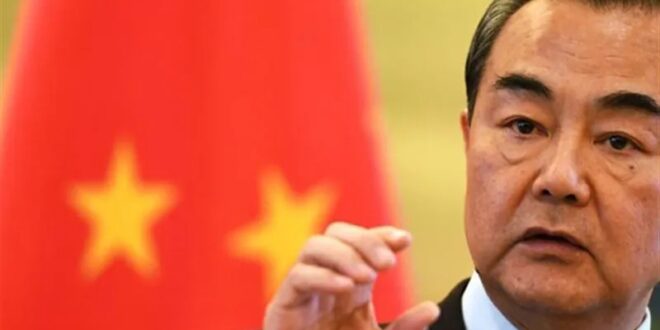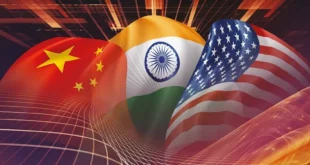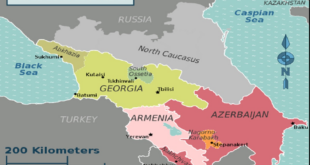Foreign Minister and State Councilor Wang Yi of the People’s Republic of China delivered his opening remarks at the International Symposium on Maritime Cooperation and Ocean Governance organized in Sanya by the China-Southeast Asia Research Center on the South China Sea (CSARC) and the National Institute for South China Sea Studies (NISCSS) on 9-10 November 2021. In his opening speech, the Chinese State Councilor raised the importance of global maritime cooperation in order to pursue the effective governance of the world’s oceans. He also urged for the full and effective implementation of the Declaration on the Conduct (DOC) of Parties in the South China Sea and the conclusion of the negotiations on the Code of Conduct (COC) in the South China Sea.
State Councilor Wang is a senior official who has also been serving as China’s Foreign Minister since 2013. As a seasoned diplomat, he has travelled around the world witnessing the enormous value of the ocean, which he rightfully describes as the “cradle of life”.
He laments, however, that the “marine ecosystem is worsening, and global ocean governance is confronted by myriad of challenges”. Though he does not elaborate in his brief speech the extent of the damage of the global ocean, he strongly proposes the following efforts in order to protect the world’s marine environment:
To commit to multilateralism and jointly safeguard the maritime order by defending primarily the UN-centered international system;
To stay committed to dialogue and consultation and jointly promote peace of the ocean by rejecting aggression and expansion and by respecting the legitimate pursuit of maritime interests by all others;
To stay committed to openness and inclusiveness and jointly deepen maritime cooperation by upholding the principle of shared benefits and shared governance; and,
To stay committed to green development and jointly protect the marine environment by “making sustained efforts to strengthen the prevention and control of marine pollution, protect marine biodiversity, and promote the orderly development and utilization of the marine resources.”State Councilor Wang’s proposals are reaffirming the positions of many scholars and experts about the need to pursue maritime cooperation in order to manage maritime conflicts of nations. His proposals also support President Xi Jinping’s Global Development Initiative, the 21st Century Maritime Silk Road and the Partnership for Blue Economy. His proposals apparently articulate China’s vision of green maritime order, which is the building of a global maritime community with a shared future that is protective not only of human needs but also the needs of other living things and the whole maritime ecosystem.
There is no doubt that State Councilor Wang’s proposals contain many innovative ideas that developing countries can share and embrace, especially those participating China’s global developmental efforts through the Belt and Road Initiative (BRI), Shanghai Cooperation Organization (SCO), and Regional Comprehensive Economic Partnership (RCEP), among others.
However, without the appreciation and support of the United States and other major powers, China will find it challenging to realize its global vision of maritime cooperation to pursue ocean governance. In fact, China’s initiatives proposed by State Council Wang can even intensify China’s growing competition with the United States under President Joe Biden who is also strongly committed to reaffirm American global leadership in various issues, especially those affecting the maritime domain.
The United States regards itself as a maritime nation and a dominant global maritime power. Thus, it has developed a sense of entitlement to speak on issues affecting the maritime domain. When other major powers talk about the maritime domain, the United States, therefore, will take it as an intrusion of its territory. But in his speech, Wang stressed, “We oppose that certain countries, for the purpose of safeguarding maritime hegemony, flaunt their forces and form cliques at sea, and continue to infringe on the legitimate and lawful rights and interests of other countries.”
While China can attract the support of the developing world in its campaign for multilateral maritime cooperation because of its inclusiveness and openness, without the support of the developed world that once ruled the oceans, like the United States and United Kingdom, China’s global efforts can just exacerbate existing major power rivalries.
It is, therefore, very essential for China to also reach out and talk with other major powers, particularly with the United States, in order to find a common ground to work together in developing a common framework for global ocean governance. The planned virtual summit between President Xi Jinping and President Joe Biden provides a golden opportunity for the two leaders to discuss global maritime cooperation in the 21st century, described accurately by State Council Wang as a century of the ocean.
Effective global ocean governance can only be realized if China, the United States and other major powers will decisively join hands to lead the world towards maritime cooperation.
 Eurasia Press & News
Eurasia Press & News




